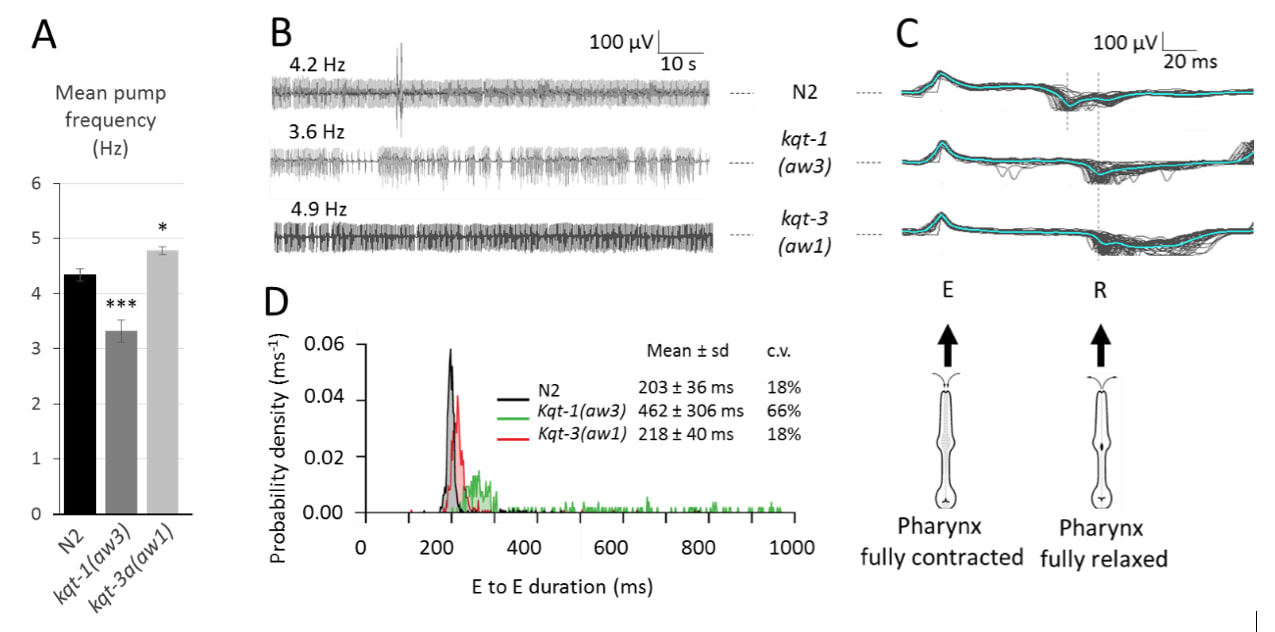Retraction
This article has been retracted on Aug 23, 2019.
Description
Pumps were stimulated with 10mM 5HT in M9 recorded as electropharyngeograms (EPGs) for 2 minutes in a NemaMetrix ScreenChip, and analyzed using NemAnalysis software (NemaMetrix). The null mutant strains kqt-1(aw3) and kqt-3 (aw1) were kindly donated by Dr. Aguan Wei (Wei et al., 2002)
A) Pump frequency in kqt-1(aw3) animals was significantly lower than in N2s, while kqt-3(aw1) worms showed an increase in pump frequency (*p<0.05; ***p<0.01; 1-tailed Mann-Whitney U-test; n = 21-23 worms in each strain).
B) Microfluidic EPG recordings show that pumping pattern in kqt-1(aw3) mutants is arrhythmic, with frequent drops in frequency.
C) Overlay of first 50 pumps of recordings show that pump duration is higher in kqt-1(aw3) and kqt-3(aw1) animals than in N2s. Pumps are showed aligned on E spikes, which occur when the pharynx is fully contracted.
D) Duration histogram illustrating the probability of occurrence of inter-pump interval (E to E duration) for each mutant strain. Histograms were binned to 4 ms width and normalized to reach an area underneath the curve equal to 1 (duration 100% likelihood to occur). In kqt-1(aw3)) animals, the time between two pumps is significantly increased compared to N2s (p < 0.01).
References
Funding
NemaMetrix, LLC
Reviewed By
Daniel WilliamsHistory
Received: October 21, 2016Accepted: November 3, 2016
Published: November 10, 2016
Copyright
© 2016 by the authors. This is an open-access article distributed under the terms of the Creative Commons Attribution 4.0 International (CC BY 4.0) License, which permits unrestricted use, distribution, and reproduction in any medium, provided the original author and source are credited.Citation
Clovis, Y; Webb, A; Turner, C; Roberts, B (2016). Mutations in KCNQ potassium channels cause pharyngeal pumping defects in C. elegans. microPublication Biology. 10.17912/W2MW2D. Retraction in: microPublication Biolgy. 10.17912/micropub.biology.000165.Download: RIS BibTeX




